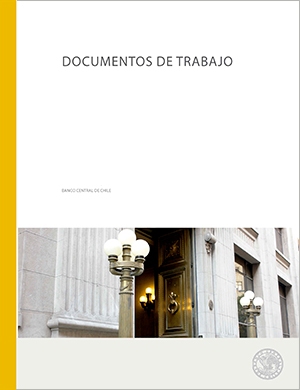Working Papers N° 58: Demand for Reserves Under International Capital Mobility
Publications
Working Papers N° 58: Demand for Reserves Under International Capital Mobility
Autor: Pablo García - Consejero
Description
In this research, I assess the determinants of foreign exchange reserves under endogenous capital flows. I consider a model where reserves represent collateral to international borrowing, which is endogenously determined by risk averse foreign investors. This is a departure from usual models of reserve accumulation, that focus solely on the portfolio decision of a central bank along the lines of optimal inventory control models or precautionary saving. In contrast to this view, I find that the expected effect on reserves of changes in the international interest rate or the volatility of the terms of trade is ambiguous if actions are simultaneous. However, if foreign investors and the central bank act sequentially, this ambiguity breaks down. Empirical evidence from OECD and non-OECD economies is suggestive: while LIBOR and terms of trade volatility positively affects the demand for reserves in OECD economies, the effects are reversed in non-OECD countries. This indicates that commitment issues are an important factor in the determination of reserves in non-OECD countries.
Working Papers N° 58: Demand for Reserves Under International Capital Mobility
Boxes and graphics

